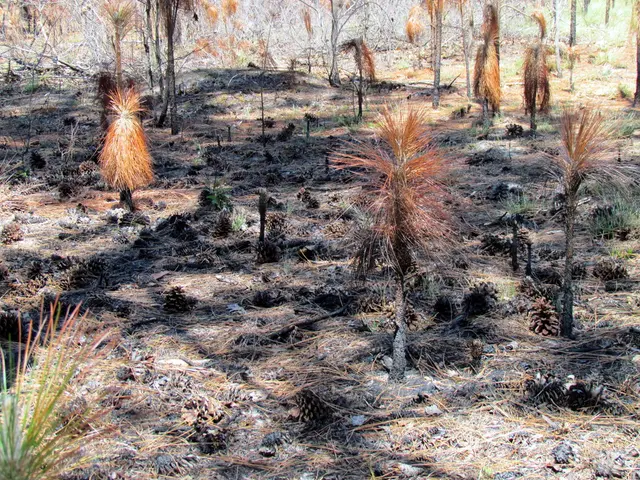Turkey considers tightening credit restrictions as financial relief predictions for mid-2026 materialize
The Financial Stability Committee in Turkey is actively reviewing credit growth limits and considering future policy steps to manage their implementation. This move aims to maintain financial stability while supporting the economy.
Discussions have underscored that credit growth limits, especially on foreign exchange loans, are being closely monitored, with the Central Bank enforcing strict monthly growth limits to strengthen monetary transmission and contain risk.
Regarding the KKM deposit scheme (foreign exchange-protected Turkish lira deposit accounts), the authorities have been gradually phasing out this scheme since 2023 as part of a shift toward more conventional economic policies. The scheme, designed to shield deposits from currency depreciation, is believed to be close to termination by the end of 2025.
The phase-out of KKM is linked to an increasing share of Turkish lira deposits in the banking system, now near historical averages (~60%), which helps strengthen the monetary transmission mechanism and mitigates risks to the central bank's balance sheet.
The balance of KKM accounts, especially with real persons, is currently around $12 billion and continues to decline, signaling progress toward ending the scheme. The opening and renewal of KKM accounts for legal entities were terminated earlier this year. Officials expect to end new account openings and renewals for individuals within 2025 once the balance sufficiently drops.
Isbank CEO Hakan Aran anticipates a normalization process from May next year, with potential lifting of restrictions and renewed prioritization of economic growth in Turkey. He forecasts that inflation could fall to 29% by year-end, while the policy rate may settle around 35%.
The Central Bank of the Republic of Turkey (CBRT) had hiked its benchmark policy rate to 46% from 42.5% in April, but most of that tightening has since been unwound. Aran expects tight financing conditions and elevated borrowing costs to begin easing around May next year.
The committee also analyzed scenarios regarding the future of the KKM deposit scheme. Officials and the central bank have said the KKM scheme would be terminated by the end of 2025, though many bankers believe the exit could come even sooner.
The meeting followed a statement by the chief executive of Turkey's biggest private bank, suggesting that financing constraints for the real sector may begin to ease around mid-2026. The Turkish government held a meeting on Wednesday to discuss credit growth limits and possible policy steps regarding their implementation.
It's important to note that the Turkish economy has faced significant challenges in recent years, including high inflation and economic instability. In July, consumer price inflation slowed to 33.5%, the lowest rate since November 2021.
The CBRT is due to present its third quarterly inflation report of the year on Thursday. These developments suggest that Turkey's economy is moving towards a more stable and conventional monetary environment, a positive sign for investors and businesses alike.
In light of the upcoming termination of the KKM deposit scheme by the end of 2025, discussions regarding the future of Turkey's economy have emerged in the business sector, with Istanbul-based banks anticipating a renewed focus on economic growth by 2026. The Financial Stability Committee in Turkey continues to consider policy steps to manage the implementation of credit growth limits, which are crucial for maintaining financial stability and bolstering the country's economy.




